Close UP
Fuchu JSL Learning Support Association ~Accompanying children of foreign roots - and their parents -with empathy~
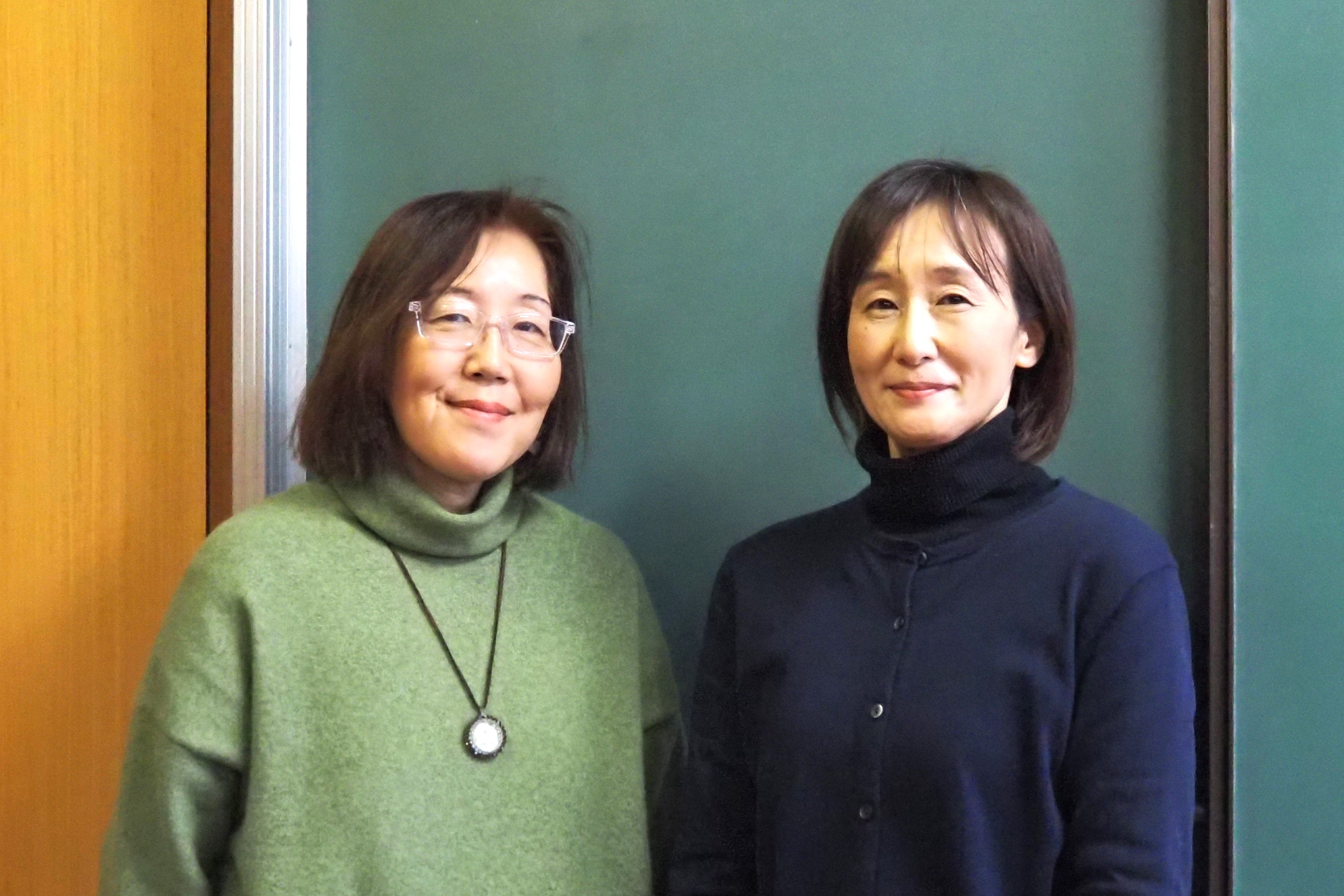
In 2022, the Fuchu JSL Learning Support Group was established. Later, in 2024, it changed its name to Fuchu JSL Learning Support Association and made a new start as a corporation. They support children with foreign roots and their parents or guardians by helping them learn Japanese and other subjects, so that they may live their school life without anxiety. We spoke with Ms. Sonoko Ueda, the representative, and Ms. Akane Ishibashi, a Japanese language learning supporter.
Aiming to Provide Better Japanese Language Learning Support in the Early Stages after Arrival in Japan
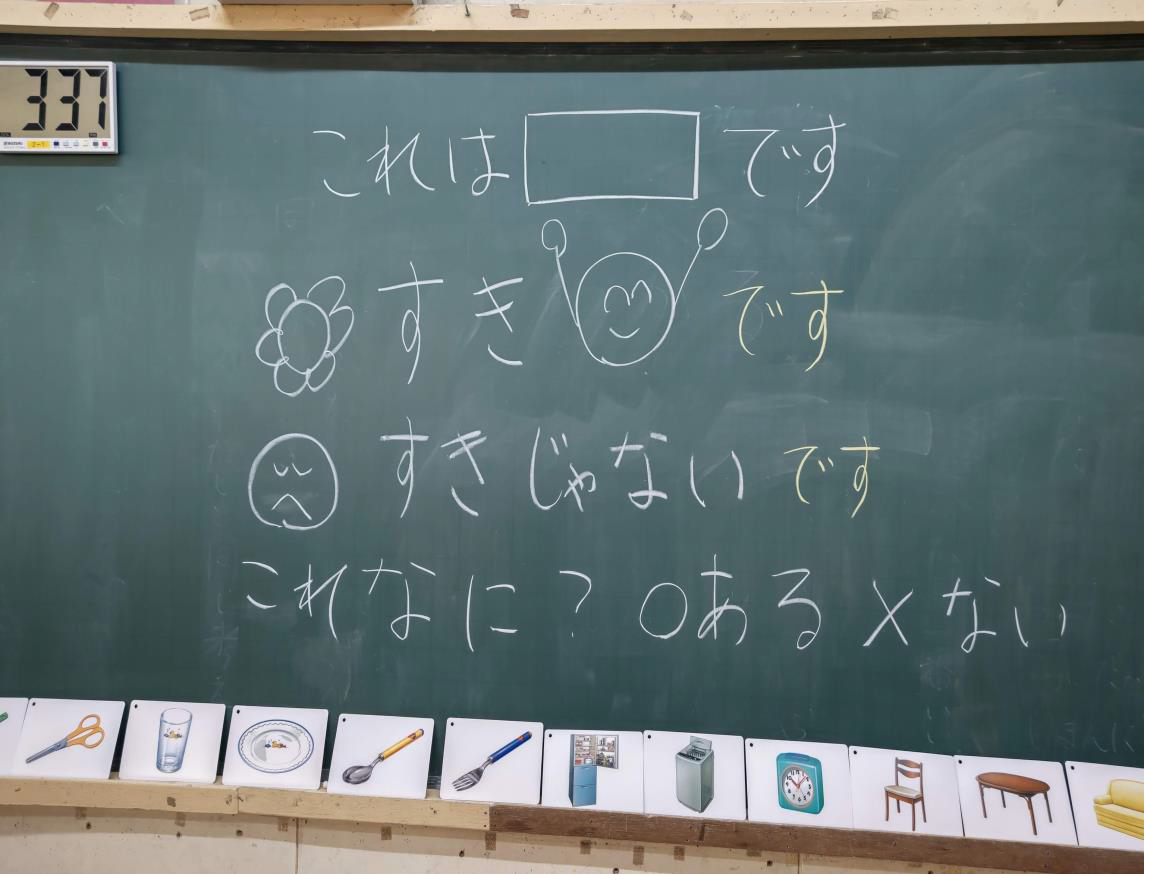
"We believe that the most important thing is to ensure that children with foreign roots and their parents or guardians can lead their school life without any anxiety. We want to support (children) so that they do not feel left out of school life," says Ms. Ueda, the representative.
An association was founded when a metropolitan high school in Fuchu City decided to accept foreign students living in Tokyo, and the school asked teaching a Japanese language volunteer class in Fuchu city to assist with Japanese language instruction. In 2017, volunteers gathered and began teaching Japanese to students with foreign roots. They helped many students pass the JLPT (Japanese Language Proficiency Test). In 2022, the support at the high school ended, and the activities were moved to elementary and middle schools, and restarted as "Fuchu JSL Learning Support Group".
"While we were providing support at high schools, there were many times when we thought that it would have been better if the Japanese language support that (children) received in the early stages of their arrival in Japan had been more appropriate. When applying to high school, students who have been in Japan for three years or less can take entrance examinations with considerations given to their limited ability for reading and writing Japanese under special quota for students with foreign roots. (On the other hand), children who come to Japan as elementary school students must take the general entrance examination because they will have lived in Japan for more than 3 years by the time they take the exams. Many students struggle to enter high school but are unable to go to the next grade because they can't keep up with the classes. So, we decided to move our support to elementary and middle schools to enhance Japanese language teaching in the early stages of the children's arrival in Japan."
Japanese Language Learning Support that Leads to Classroom Learning
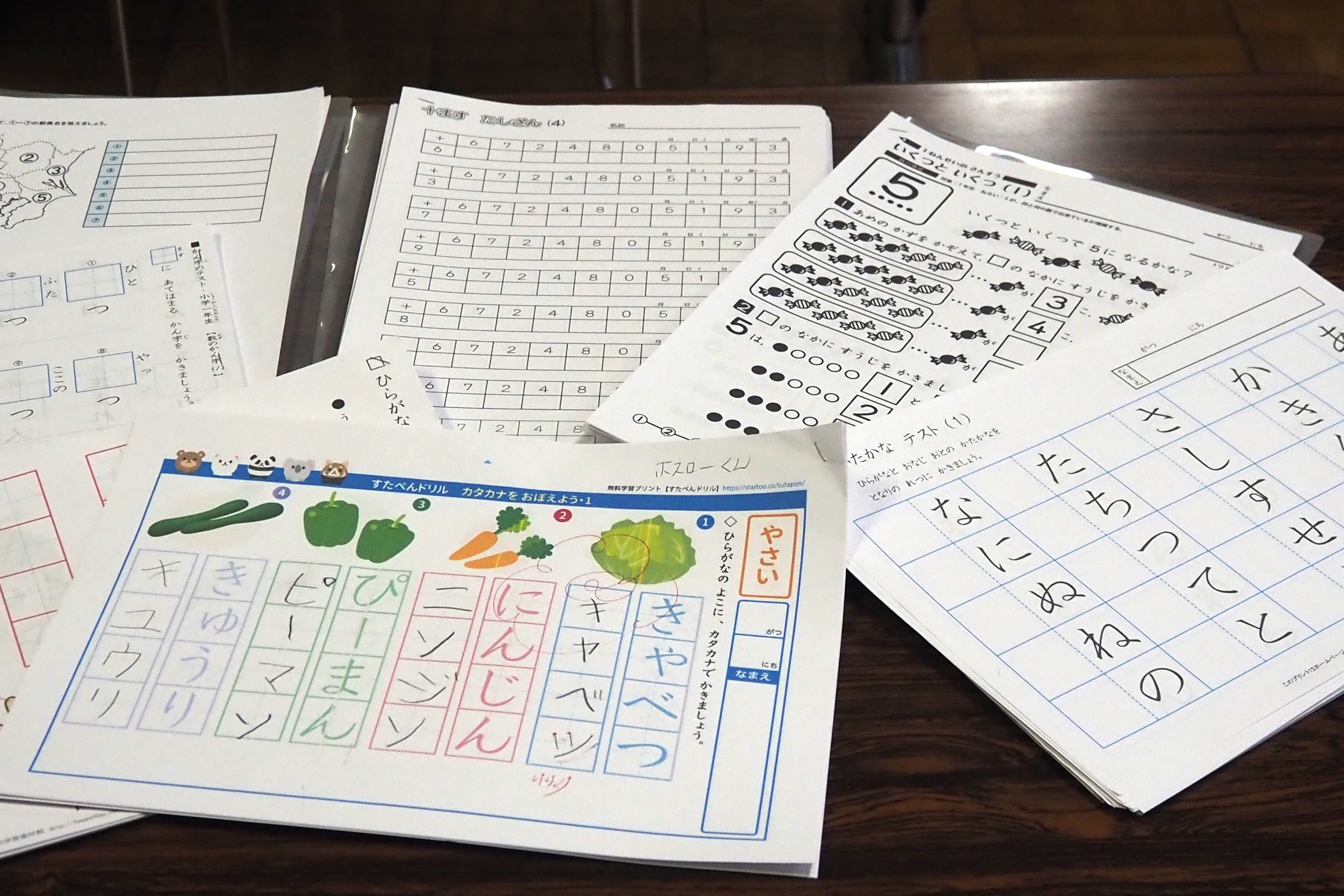
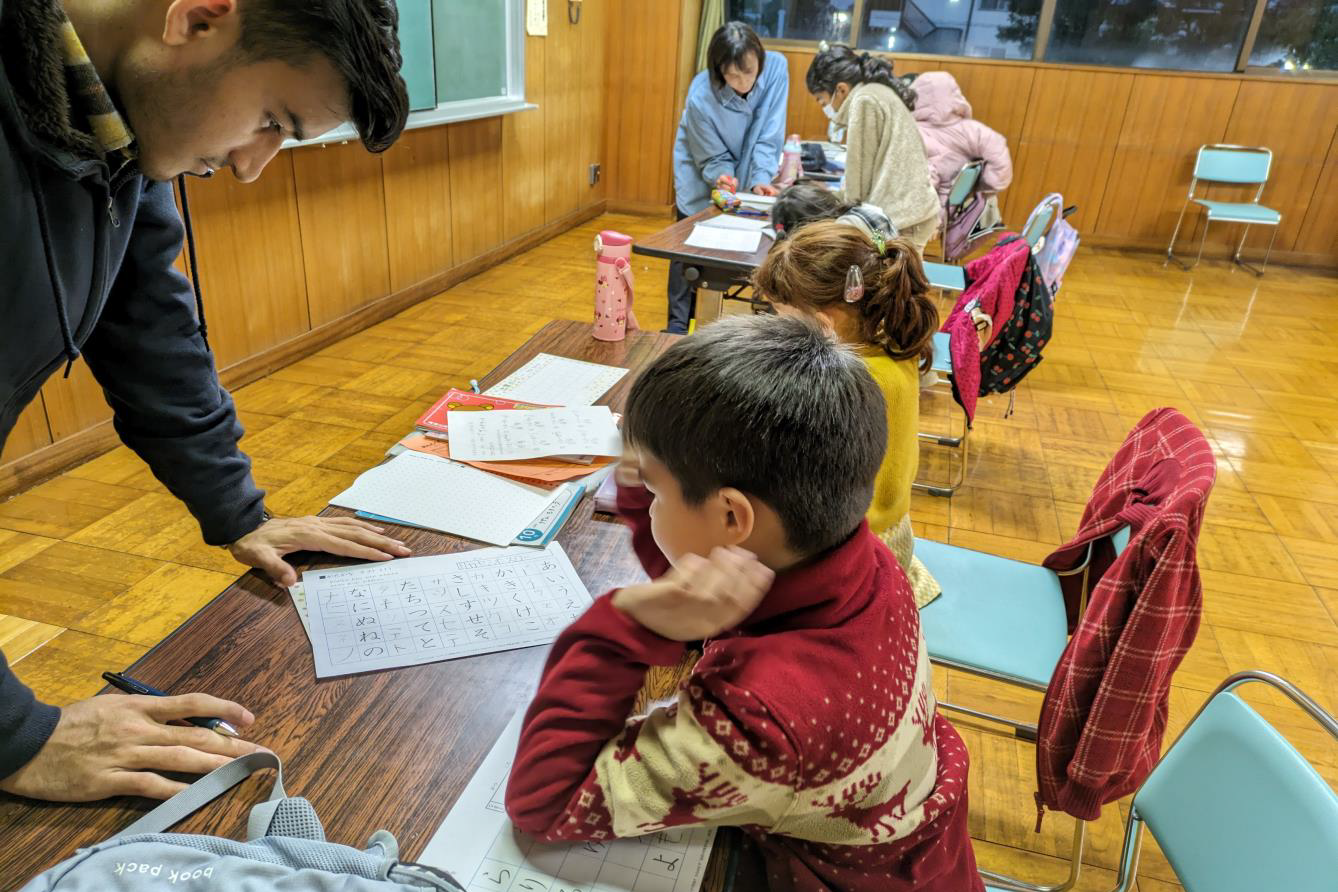
There are two national universities in Fuchu City: Tokyo University of Foreign Studies and Tokyo University of Agriculture and Technology. Among those who come to Japan for master's and doctoral degrees to these universities are many people in their 30s and 40s, with their children.
In Fuchu City, 100 hours of Japanese language learning support is provided to students whose native tongue is a foreign language, but 100 hours is not enough time for children to acquire the Japanese language skills they need to understand classes. In addition, although there are Japanese language classes taught by volunteers in Fuchu City, the Fuchu JSL Learning Support Group was the first to specialize in supporting children. In addition to support at elementary and middle schools, the association currently provides after-school study support at city facilities.
"Some children bring their school homework to (our) learning support (place), but often they can't do it because it's inappropriate for their level," says Ms. Ueda. As she describes it, one of the biggest obstacles that stands in the way of children coming to Japan is the language they have to use in the class. While "basic interpersonal communication skills" used in daily conversation may be acquired in one to two years, "cognitive academic language skills" are said to take more than five years to acquire. For this reason, the association is also making efforts to support learning of subjects.
"When (children) first come to Japan, they start learning language from the words they use in their daily lives and the words they use to express themselves. However, school life, especially studying in the classroom, does not consist of just that (the words of daily life). We need to connect them to learning of subjects through our support," says Ms. Ueda.
Remove any anxiety in their school life, even if just a little bit.
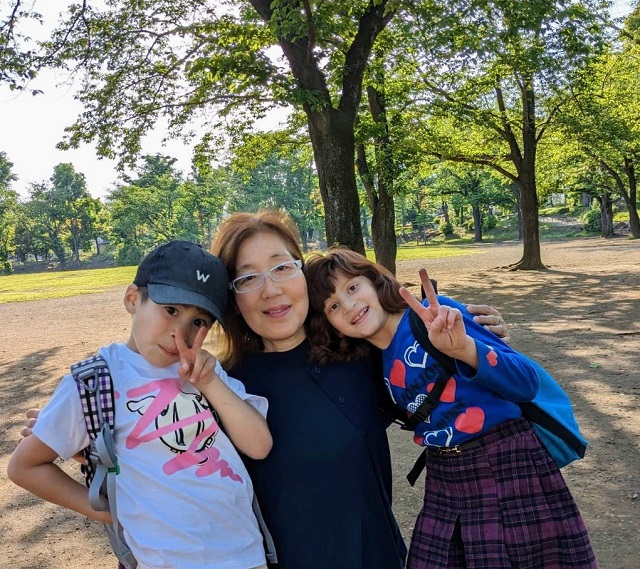
Fuchu JSL Learning Support Association provides "adaptation support" for students who have just arrived in Japan, "classroom support" to help children understand teachers' instructions in the classroom so that they are not left behind, and Japanese language learning support at schools.
"Adaptation support is for children who come to Japan with no Japanese language skills. We attend classes, accompany children from classroom to classroom, and help them quickly become accustomed to the procedures and rules of school life. We provide support in Japanese and through hand gestures, as well as the use of a translation device when necessary. There are a lot of unique Japanese cultures in schools that they don't have in their countries. I believe that when (a child) is new to a new place and is unable to communicate, just having someone next to the child makes them feel safe and secure," says Ms. Ueda.
Since support activities will be conducted in schools, a request must be made by the school to request support. When the Fuchu JSL Learning Support Association began providing support at elementary and middle schools, they took the information of their activities to the Board of Education and had it distributed at the principals' meetings. Their activities are gradually expanding from there.
Children are supported by former school teachers and Japanese language teachers. They teach children while studying Japanese language teaching methods - and how to teach children themselves - at monthly workshops. The presence of school teachers and Japanese language teachers makes it possible to provide support from the respective perspectives of subject teaching and Japanese language education, according to Ms. Ueda.
Ms. Ishibashi, who was a teacher at a middle school, says, "I am a support staff member at a middle school and I am in charge of 2nd and 3rd graders. I still find it difficult when it comes time to prepare children for exams. Even if they can enter high school under special quota for students with foreign roots, they (children) face difficulties after entering schools if they do not understand the subjects they learn daily. I think we have to make sure we teach them what (they) need to learn."
Visiting Schools to Assist Students
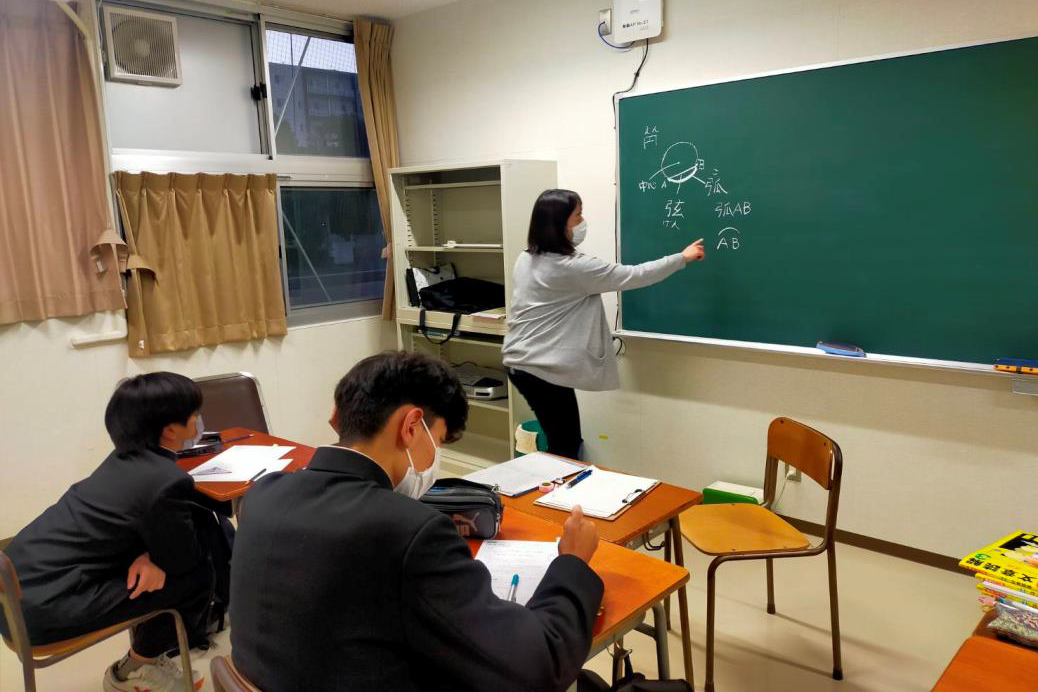
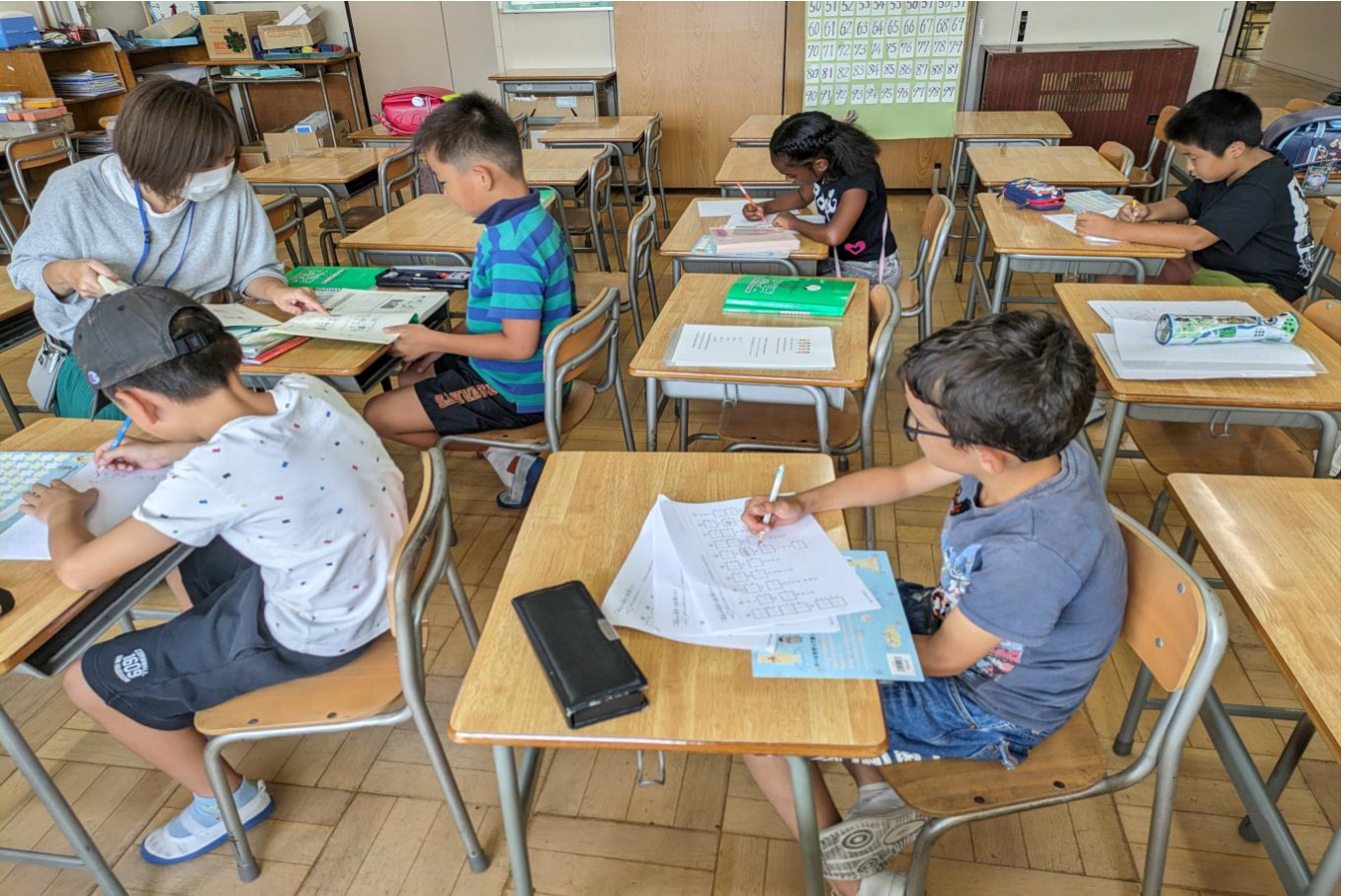
In FY2023, the Fuchu JSL Learning Support Association assisted 34 students at 9 elementary schools and 9 students at 4 middle schools in Fuchu City. The number of students they support is increasing every year. They consult with the homeroom teachers of children in each school to determine how to provide support.
"The Fuchu JSL Learning Support Association places importance on having support staff visit schools to provide support," says Ms. Ueda. She says there are three reasons for that.
"The first is that support provided in-house at each school is less burdensome for children and does not require parents to pick up and drop off their children, thus lowering the hurdle of commuting.
Second, it allows us to see children in classrooms from the perspective of supporters. Children are quite different outside of school and inside classrooms. It allows us to see what is going on with children, including in the classrooms.
Thirdly, we can collaborate with homeroom teachers. We provide support not only in terms of study, but also in terms of communication between school and home, and in case some documents need to be submitted to schools. We believe we have something to convey because we are in classrooms.
Another benefit is that we can watch teachers at schools and see what their current teaching style is. Ways of teaching in schools have changed over the years, so being able to know how teachers teach is helpful for us in supporting the learning of subjects."
Think about support from the perspective of "What if I were their parent?"
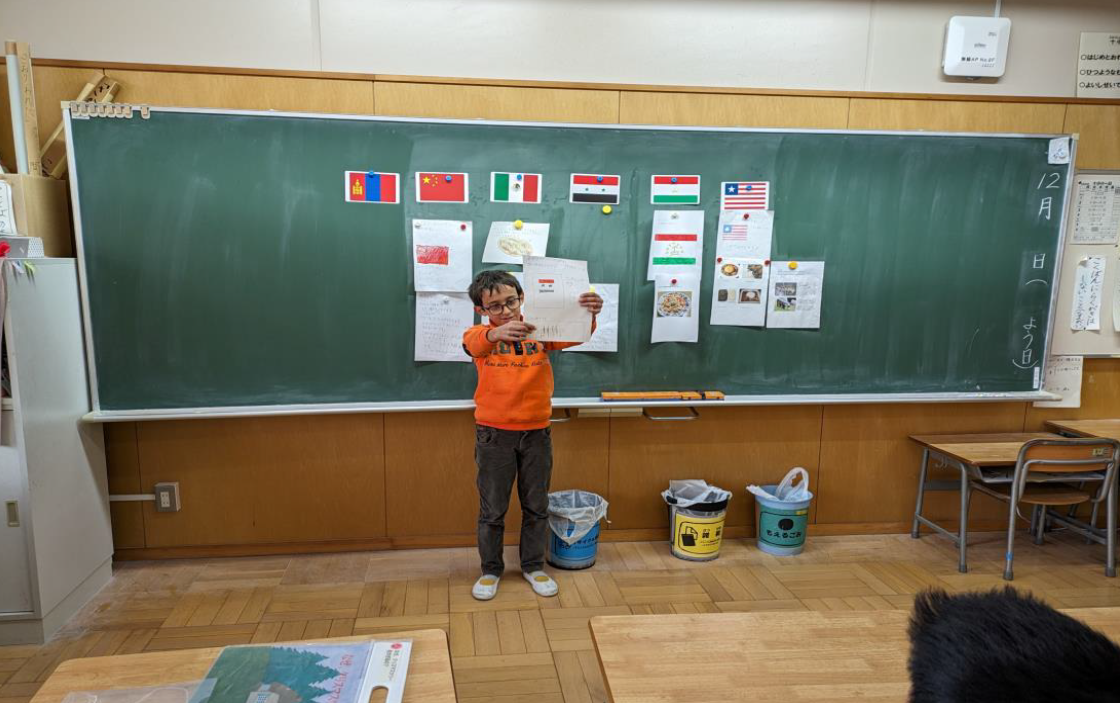
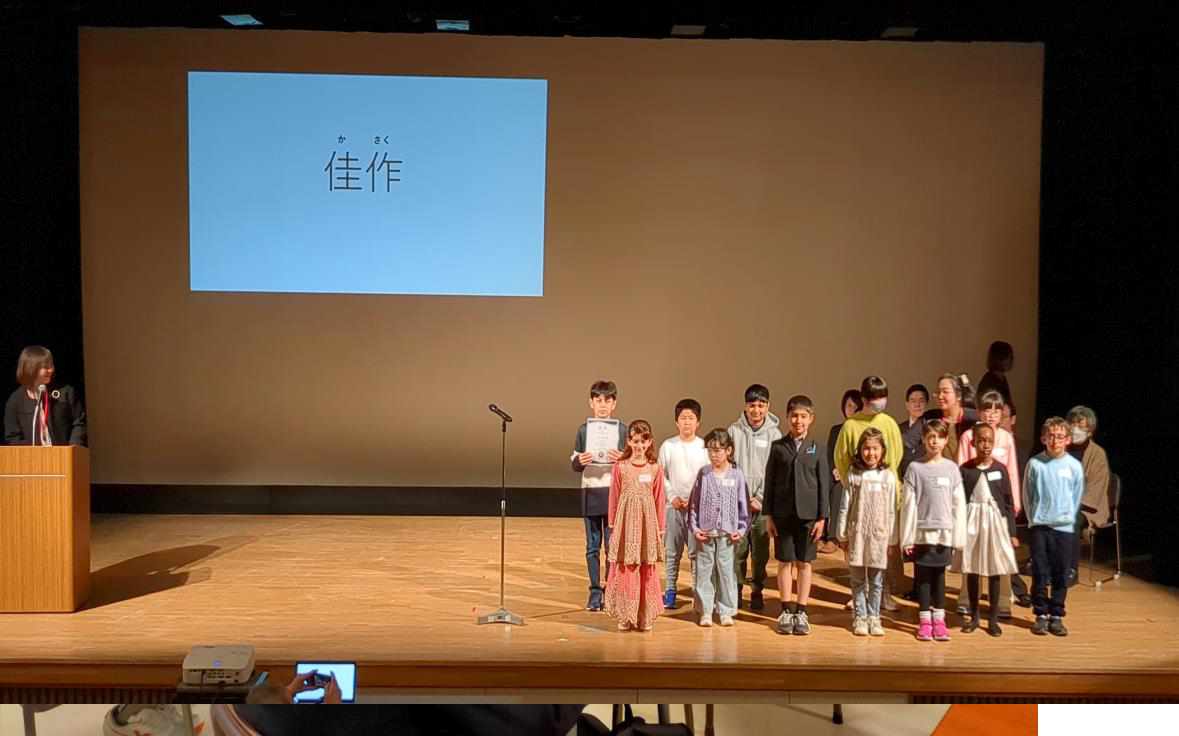
The Fuchu JSL Learning Support Association also provides support for parents. They explain the contents of handouts and letters from schools to parents and send reminders when necessary. The association helps parents and children avoid any difficulties or sadness that may occur due to their lack of understanding of the Japanese language and culture.
Recently, Muslim parents from Egypt, Indonesia, Afghanistan, and other countries have been asking them to check their children's school lunch menus. So, they hands parents a monthly menu list with "OK to eat" and "Not OK to eat" marked on the menus.
On days when children cannot eat the school lunch, the association tells parents to have their children bring their own lunches. They say this is a matter that should never be forgotten. They also provide Japanese language learning support for parents and guardians via Zoom upon request.
"(The way I come up with my ideas is) I imagine if I were a parent, and then thought about the kind of support I would need," says Ms. Ueda. They often receive letters of appreciation from parents.
Ms. Ueda says that they hope to eventually create a place like a Japanese language class that children may attend before entering school or moving to a new one.
"When children move into (a new school), they suddenly enter a classroom, which makes them feel confused. There was once a child from Afghanistan who came to school the day after she arrived in Japan, and as soon as they entered the classroom, she started to cry. If you come to a foreign country and are suddenly thrown into a classroom, it is understandable that you would be confused. We think it would be nice to have a place to learn Japanese, including reading and writing, before entering school. It may be difficult to do now because we have no budget, but we hope to make it eventually."
The Fuchu JSL Learning Support Association is committed to expanding the safety net for children with foreign roots and their parents, to ensure that they are not left out of school life and are not isolated.
